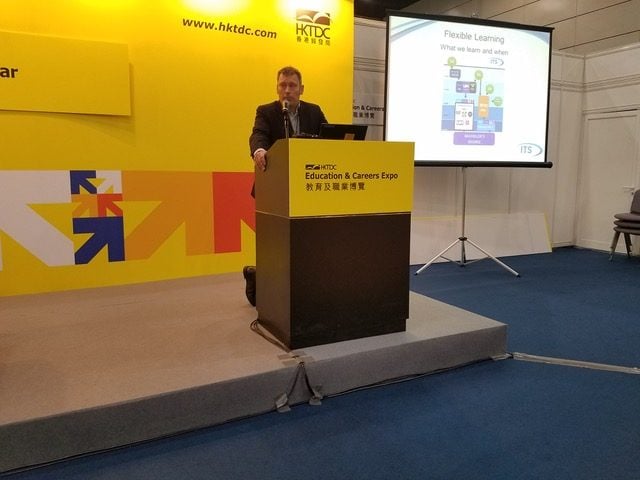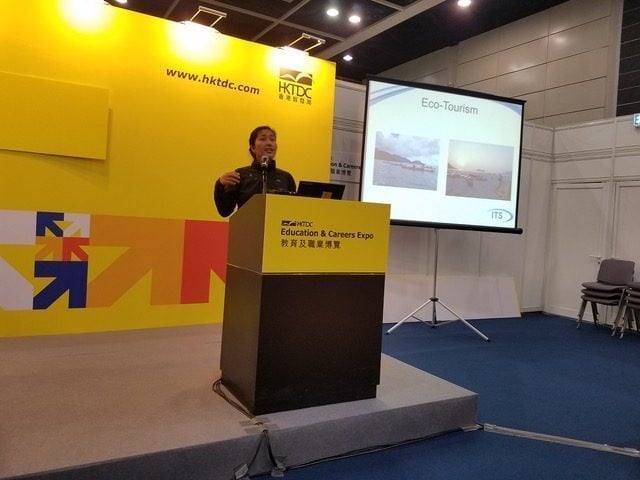* Terms and Conditions apply.
Phew! We just finished the 2017 HKTDC Education & Careers Expo at the HK Convention & Exhibition Centre. As with all exhibitions, we had a busy 4 days chatting to students and parents as well as other educators about the options that they have to develop their education pathway.

Mike Li – Head of US Admissions and Ruth Puentispena, Exams Officer
ITS Education Asia took on the theme of flexible learning for the exhibition. So many students, for whatever reason, are stuck with the impression that education means 6 or 7 years of secondary school, exams, 3 or 4 years of university, exams. Frankly this is an attitude that is simply plain wrong on so many levels. First and foremost it simply doesn’t have to be that way and sadly for many people, trying to fit themselves into the standard model when it is not appropriate for them leads to “failure” and a lifetime of wasted potential.

Danny Harrington speaking about Flexible Learning
When I talk about flexible education, I mean it in 3 key ways and at 4 scales. We need to be flexible in how we learn, or the mode of learning. This can include teacher-led learning but also flipped learning [student researches before teacher involves]. It can include classroom, online & outdoor learning blended together across a course. And it can be assessed in many ways other than exams. Then we need to look at what we learn and when. Even within compulsory national curricula there is room for flexibility in what is taught to achieve the academic outcomes set by government. But we must ensure that children learn well beyond the academic criteria that school and the law sets out for them. Finally, we need to be flexible in how we apply our learning. Employers are getting better [e.g. employing Theology grads as systems analysts] and students [and those holding the purse strings] need to get better at choosing courses that are suited to their passions and skills and be confident that these will lead into gainful employment.

Wanda Huang, Curriculum Developer, speaking about Experiential Learning
And all of this ought to be employed across the scales at which we view and organise education – national, local, school and individual. Few national and local frameworks seem to be truly enlightened but many schools do an excellent job of providing their students with the means to individualise their education within the school. Unfortunately, many do not and students need to realise that there are other options and that there is choice within any system. The Graduate School of Education at Harvard has some excellent open access research on all aspects of education . I particularly like the work on the 3 pillars – student, parent/family/guardian, school – which support our children in their educational development. By recognising that we all have responsibility we can begin to avoid the trap of just devolving everything to the school and government and begin to realise that we can take advantage of the flexibility there is to weave truly appropriate and rewarding educational outcomes for ourselves and our children.
ITS Education Asia offers a range of flexible learning pathways leading to globally recognised qualifications. Contact us.